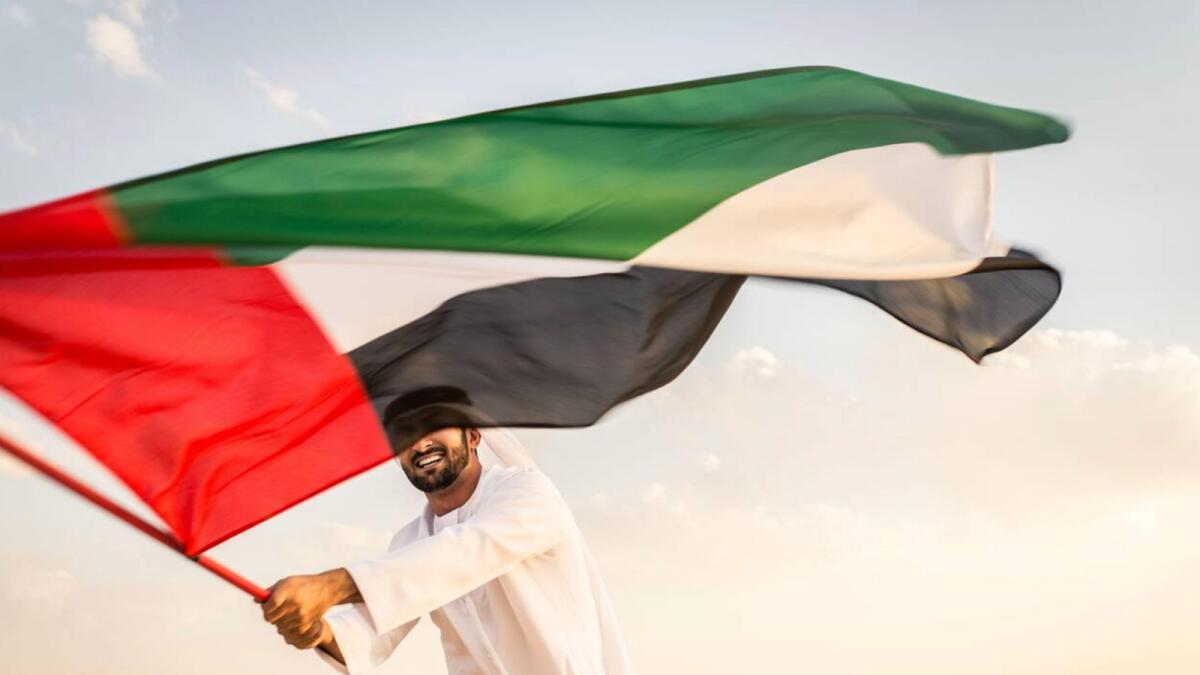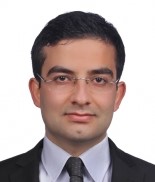Hamdullah Baycar
Global-Local: Being an Emirati in a Globalized World
Hamdullah Baycar

With globalization, the influence of national and local identity was expected to loosen at the expense of global and cosmopolitan identities. However, despite the increased foreign population in nation-states, the citizens still have a considerable attachment to their national identity. The recent rise of right-wing politics in the United States (US) and Europe is believed to have a direct relation to globalization (Rodrik, 2021).
The rise of right-wing politics in the US and Europe occurred despite the number of foreigners being limited in the country's total population. The United Arab Emirates (UAE), a country where the number of nationals is only ten percent of the country, presents an interesting case to examine how the number of non-nationals plays a role in the debate around national identity and globalization in general.
The UAE deserves to be ranked amongst the world’s most multicultural countries, from the number of languages spoken there to the visibility of world architecture. The UAE has a complex relationship with globalization. While nationals do complain at times about their identity being lost, globalization is also embedded within the national identity, not only through globalizing the UAE's (and the Arabian Gulf’s) heritage but also by using globalization-related concepts within the national identity, such as tolerance and multiculturalism.
The Fallacy of Diversity Came with Globalization
Two major fallacies occur in the UAE's narrative of globalization. The first is that of the historic homogeneity of the land by, claiming that the boom of migration to the UAE occurred after the discovery of oil, which was a cause for UAE's integration into globalization and thus the reason for the UAE's diversity. However, Akinci (2018), AlMutawa (2016), Kanna (2011), Onley (2016), and Vora & Renard (2021) have shown the homogenous status of UAE’s pre-oil society to be little more than a myth, as in reality Persians, Indians, and Africans had settled in the Gulf Emirates years and sometimes centuries before the discovery oil and the establishment of the UAE itself.
The second fallacy corresponds with modern diversity. As the UAE's economy is based on a foreign workforce, the country’s diversity and multicultural status are de facto requirements for its existence (Fox et al., 2006). However, diversity and multiculturalism in the UAE face "indigenous conservatism," where the "traditional social structure persists and directs the changes, and serves to filter what is acceptable” (Fox et al., 2006, p. 3). Therefore, multiculturalism and diversity in the UAE may not mean to its inhabitants what they mean in the rest of the world.
The Benefit of the Globalisation: Diversity and Tolerance
After aiming to show the heterogonous status of the state as a post-oil issue, the UAE’s political elites utilized the concepts of diversity and tolerance as pillars of the state and presented diversity a result of the multiculturalism that arose after globalization. These two terms are used in many contexts. For example, the word "tolerance" is emphasized through the appointment of the first-ever Minister for Tolerance, who announced the year 2019 to be the Year of Tolerance. All of these initiatives helped the UAE build a positive image domestically and internationally.
While the UAE presents itself as a tolerant and multicultural state by using the relevant terminology repeatedly, the country also presents the existence of foreigners as a benefit in the arena of international politics. For example, the first-ever Papal visit to the Peninsula in 2019 was described as “tremendous” opportunity for Catholics to meet and welcome their leader and also an opportunity “allow[s] the world to appreciate the UAE’s contribution to pluralism and safe, peaceful prosperity”, a statement made by Sheikh Nahayan Bin Mabarak Al Nahyan, then UAE’s Minister of Tolerance. The visit was considered a recognition of the migrants but also as a significant diplomatic achievement by the country’s leaders, made possible, however, through the diverse population of residents (Debusmann, 2019).
Proud World and Emirati Citizen
The notion of the UAE as a small cosmos (200 nationalities living in harmony) and the Emiratis' ability to travel the world create a sense of appreciation among the nationals, while also lending a sense of harmony and multiculturalism to the country in the eyes of the non-nationals and the world. This double-edged globalization (the UAE as a home of 200 nationalities and a powerful passport which allows citizens to travel all over the world) creates a sense of "world citizenry" in the UAE. The notion of “world citizen” actually functions to empower and strengthen the Emirati identity through the prestige the UAE has been able to achieve. Their country’s success gives the citizens pride in their national identity.
References
Akinci, I. (2018, February 15). The Multiple Roots of Emiratiness: The Cosmopolitan History of Emirati Society. OpenDemocracy. https://www.opendemocracy.net/en/beyond-trafficking-and-slavery/the-multiple-roots-of-emiratiness/
AlMutawa, R. (2016). National Dress in the UAE: Constructions of Authenticity. New Middle Eastern Studies, 6. https://doi.org/10.29311/nmes.v6i0.2668
Debusmann, B. (2019, February 8). Visit by Pope Francis puts UAE’s promotion of tolerance on the world stage. Arabian Business. Retrieved August 20, 2022, from https://www.arabianbusiness.com/industries/industries-culture-society/412826-visit-by-pope-francis-puts-uaes-promotion-of-tolerance-on-the-world-stage
Fox, J. W., Mourtada-Sabbah, N., & Mutawa, M. al- (Eds.). (2006). The Arab Gulf region: Traditionalism globalized or globalization traditionalized? In Globalization and the Gulf (pp. 3–61). Routledge.
Kanna, A. (2011). Dubai, the city as corporation. University of Minnesota Press.
Onley, J. (2016). Indian Communities in the Persian Gulf, c. 1500–1947. In L. G. Potter (Ed.), The Persian Gulf in Modern Times: People, Ports, and History (pp. 231–267). Palgrave Macmillan.
Rodrik, D. (2021). Why Does Globalization Fuel Populism? Economics, Culture, and the Rise of Right-Wing Populism. Annual Review of Economics, 13(1), 133–170. https://doi.org/10.1146/annurev-economics-070220-032416
Vora, N., & Renard, A. L. (2021). Who is “Indian” in the Gulf? Race, Labor and Citizenship. Middle East Research and Information Project (MERIP), 299. https://merip.org/2021/08/who-is-indian-in-the-gulf-race-labor-and-citizenship-299/

Hamdullah Baycar is a PhD candidate at the Institute of Arab and Islamic Studies at the University of Exeter, UK.
Back to Meridian 3

